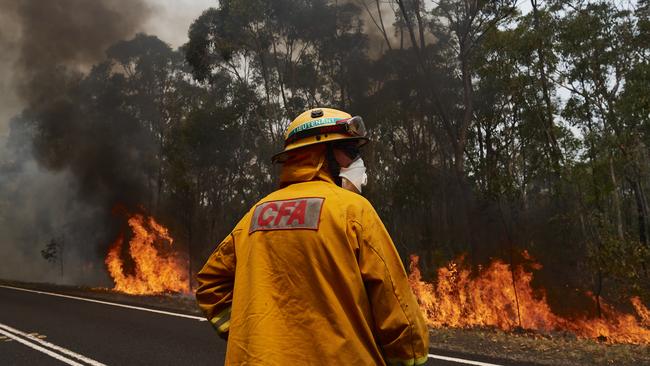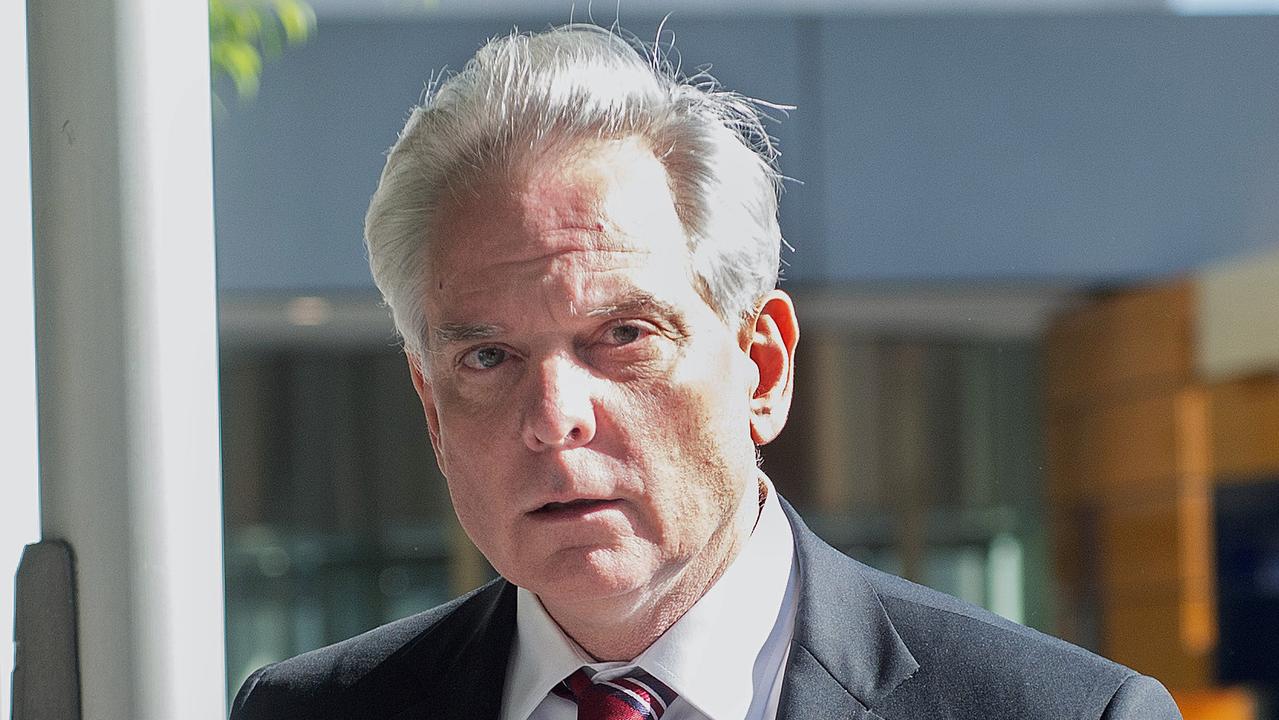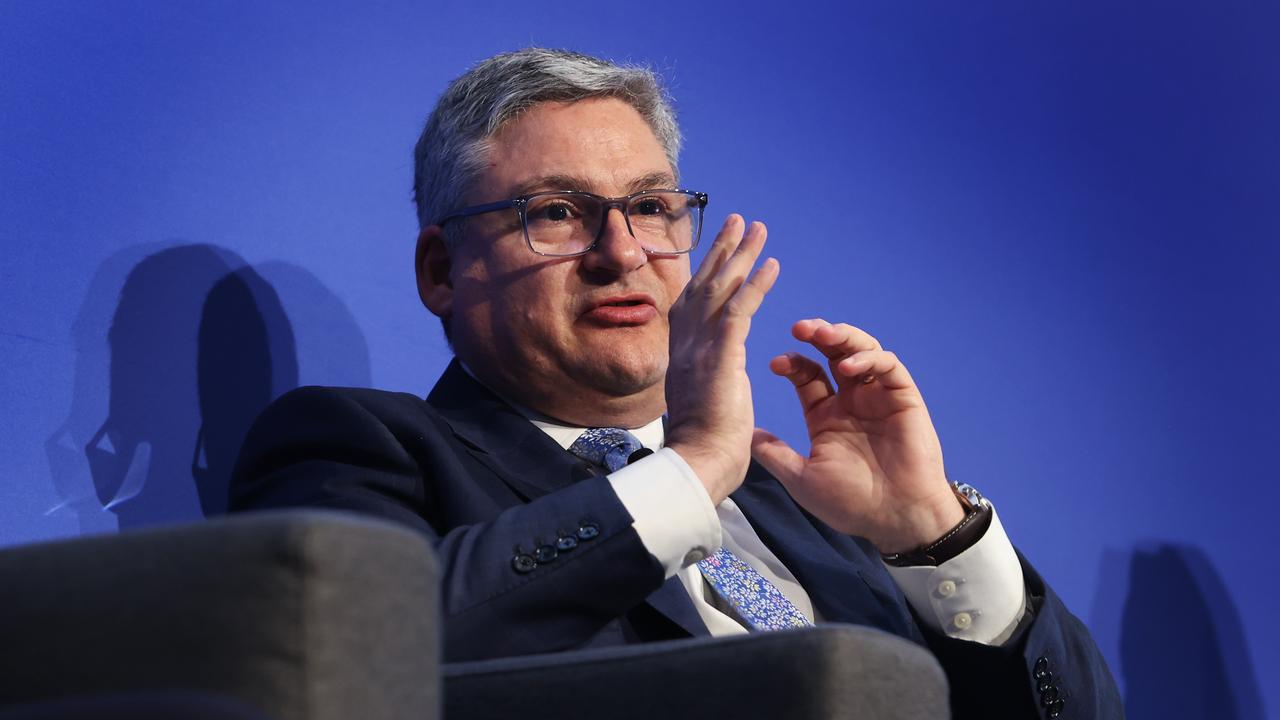Bosses’ fear of global warming on the boil
Australian chief executives are increasingly concerned about climate change, according to a global survey by PwC.

Australian chief executives are increasingly concerned about climate change, with nearly two thirds of them seeing it as a major threat, according to a global CEO survey released by audit firm PwC.
The survey results also show CEOs are displaying increasing levels of pessimism about the outlook for Australia’s economic growth and their own revenue prospects, and they plan to respond to the downturn by cost-cutting and efficiency initiatives.
The survey of 117 local chief executives, which was taken late last year before the bushfire crisis, shows there are low levels of confidence among those questioned about whether Australia has the “right solutions” to help reduce the climate change threat.
PwC’s head of Australian energy utilities and resources, Mark Coughlin, told The Australian that the bushfires had “brought to the fore the immediate challenge of setting a clear and positive direction for Australia’s energy and climate policies”.
He said policies for greater collaboration between government and business were the “linchpin” in reducing climate change risks.
The survey results show that Australian chief executives are lagging well behind their global peers in recognising the opportunities in climate change product services and opportunities such as investment in renewable energy.
Mr Coughlin said the latest survey shows the level of concern by Australian chief executives on climate change risks was “the most significant that we have seen in recent times”.
“It has risen to become one of the top 10 risks facing chief executives at a time when chief executives are also worried about economic growth and revenue growth,” he said.
“We have seen a big shift in the sands of expectations around climate change. It is now seen as a mainstream economic threat and a business threat.”
Mr Coughlin said he believed the level of concern among Australian chief executives would be much higher now after the bushfires. “If we were taking the survey now, we would expect a dramatic rise in concern,” he said.
“We are already seeing more Australian corporates taking action themselves to greater understand their risks.”
Economists expect the bushfire crisis to be a drag on Australia’s economic growth this year.
Goldman Sachs expects GDP to take a 0.3 percentage point hit over the December and January quarters, while many economists expect the Reserve Bank to cut official interest rates to offset the damage done to the tourism and agriculture sectors.
Other economists, such as AMP Capital chief economist Shane Oliver, expect a 0.25 per cent hit to GDP.
A recent report by brokerage Citi concludes that Australian companies are already preparing for a lower-emissions world in lieu of a protracted failure in energy and emissions policy by the government.
Mr Coughlin said he thought Australia was “10 years behind” some other countries in the level of co-operation between government and business on reducing the risks of climate change.
The survey shows that only 12 per cent of Australian chief executives believe that business and government are working together effectively to reduce the risk of climate change.
This is dramatically lower than the one third of chief executives in the global survey who believe that business and government in their countries are working together well on policies to reduce climate change risks.
“There is a concern (among Australian chief executives) that not enough is being done in terms of business and government collaboration in addressing climate change,” he said.
“Australia is not as well advanced in that collaboration as other nations. We have seen really strong collaboration in other regions, particularly in Europe.
“In Australia we are 10 years behind in some of that, partly due to policy uncertainty.”
Mr Coughlin said the survey shows Australian companies are not “looking systematically” for ways to look for opportunities from the transition to a low carbon economy.
He said this was in contrast to a “growing global consensus” on business opportunities around climate change. This was particularly evident among chief executives in China, India, the US, Brazil, Italy, Japan and Germany.
He said China has seen the most dramatic change in views over the past decade, with 47 per cent strongly agreeing that there were climate change-driven opportunities for their organisation, up from 2 per cent in 2010.
But in Australia, the level of chief executives seeing business opportunities from climate change has fallen from 20 per cent in 2010 to 17 per cent in the latest survey.
The survey shows that Australian chief executives are showing record levels of pessimism as 59 per cent predict a decline in global GDP this year, a dramatic rise from 7 per cent two years ago.
PwC Australian chief executive Luke Sayers said the big rise in pessimism was not surprising given the uncertainty over trade tensions between the US and China and a lack of agreement in Australia on how to deal with climate change.
“Australian chief executives are not unique when it comes to economic pessimism for 2020,” Mr Sayers said. “But while their global counterparts are responding with proactive growth strategies, many local chief executives are focusing their response on cost-cutting and operational efficiency initiatives.”
He said it was not surprising that climate change was emerging as a major threat for Australian chief executives.
But he said it was “worrying” to see the results of the survey show that half of Australia’s chief executives are yet to assess the potential infrastructure damage their company could face from future climate change events.
Mr Coughlin said the survey showed Australian business is now in a “challenging period”.
“We have rising climate change risks coming at the same time as there is pessimism around economic growth and business revenue,” he said.
“If we look at the cost of remediation in the wake of the bushfires and other natural disasters, it is a pretty challenging cocktail for chief executives in Australia.”
with Michael Roddan




To join the conversation, please log in. Don't have an account? Register
Join the conversation, you are commenting as Logout